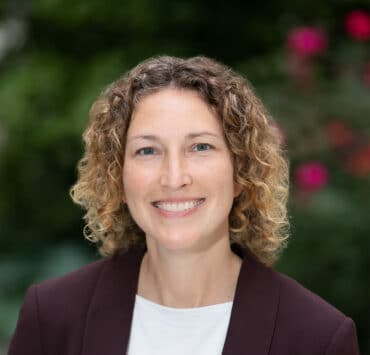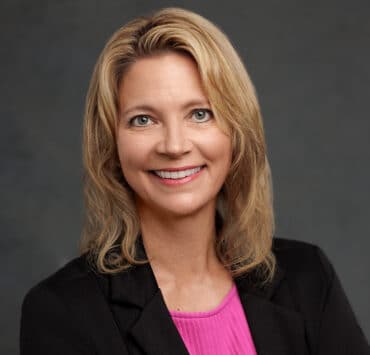TrestleTree CEO and Cofounder Ted Borgstadt has always sought to impact communities, one life at a time. He’s spent more than forty years in the healthcare industry, and when he established TrestleTree in 2001, he fixed on a holistic approach to helping people take control of their health.
“I got out of school in ’83 and moved from Missouri down to northwest Arkansas,” Borgstadt says. His plan to follow in his brother’s footsteps on the pre-med route was derailed when he encountered organic chemistry, so he switched to business. After graduating, he spent eleven years building his business skills in management positions for a pharmaceutical company before going into business for himself.
In 1994, Borgstadt acquired a few retail pharmacies in northwest Arkansas, giving him an insider’s look into the health behavior challenges of his customers. When a patient leaves the physician’s office, their next stop is often the pharmacy. “Our pharmacists recognized that almost everyone understood what their physician had just instructed them to do,” Borgstadt explains. “The problem was non-adherence, which was prolific twenty-three years ago and remains so today.”
Trying to solve the world’s problems while sitting on his back porch with colleagues and friends, he kept returning to the same question: how to help customers who know how to improve their health but are struggling to implement behavior change?
“We help people change behavior who struggle, who are stuck, unmotivated. Typically [people] that healthcare isn’t quite sure what to do with—in fact, oftentimes seeks to avoid.”
Ted Borgstadt
TrestleTree was born out of these back-porch exchanges. In March 2000, the dot-com bubble burst at the same time Borgstadt sold the pharmacies. He partnered up with his college friend Clint Gabbard, PhD, got investors on board, and launched the company in 2001. “The genesis of TrestleTree is still the nucleus of who we are today,” Borgstadt says.
TrestleTree developed a proprietary program that trains health professionals to build trusting relationships. “We equip health professionals to help people change behavior who struggle, who are stuck, unmotivated. Typically [people] that healthcare isn’t quite sure what to do with—in fact, oftentimes seeks to avoid,” Borgstadt says. “We support physician-patient relationships directly and work to extend and deepen the impact of adherence and behavior change within populations.”
Their first client was a Fortune 500 company with employees across the country. They’ve continued working coast to coast, engaging with employee benefit plans at a wide range of companies, universities, health systems, federal employee health plans, and hospitals.
The company takes a holistic and pragmatic approach to helping people improve their health. Their training incorporates select behavior change theories, including motivational interviewing and the theoretical model of change. TrestleTree health coaches undergo a rigorous two hundred hours of training before they begin coaching.
“TrestleTree celebrates life as a mosaic, rich with messiness, meaning, and texture. What we do is train health professionals to value that messiness in people’s lives—not to clean it up—but in the midst of that messiness be able to build trust with someone,” Borgstadt explains.
Facing skepticism is common, since some patients have often undergone other behavior change programs and not seen the desired results. Plenty of organizations address condition management, population health, and health coaching; it’s TrestleTree’s approach that sets them apart. Their model meets people where they’re at and develops a strategy based on the individual’s own belief systems and life, so they can sustain behavior change when the coach is no longer there.
“It’s not just about health; it’s about relationships, work, family, [and] finance,” Borgstadt says. “They may come in for smoking, but if they’re obese, we’re going to be intentional about their weight. We’re going to treat the whole person.”
In the two decades since starting the organization, Borgstadt has seen a number of changes. In 2006, Cofounder Clint Gabbard returned to academia and was replaced by Dr. Becky Parker, whose expertise of recruiting, training, and leading dedicated coaches has impacted many lives.
In 2014, a large federal employee health plan approached TrestleTree about licensing their training model. While the health plan had their own health professionals, they requested that TrestleTree provide its expertise in changing health behaviors. By agreeing, Borgstadt expanded the influence of TrestleTree’s training program externally for the first time.
In 2015, TrestleTree became an independent wholly owned subsidiary of Harvard Pilgrim Health Care’s HPI, which sought to fill a gap around behavior change and population health. In turn, TrestleTree gained resources and a more expansive book of business. “It was a natural fit along those lines,” says Borgstadt.
“TrestleTree celebrates life as a mosaic, rich with messiness, meaning, and texture. What we do is train health professionals to value that messiness in people’s lives—not to clean it up—but in the midst of that messiness be able to build trust with someone.”
Ted Borgstadt
As CEO, Borgstadt supports teams, sets strategic visions, and grows departments like IT, licensing, and sales/business development. “There’s so much opportunity because there’s so much need in our country for people to change poor health behaviors right now,” Borgstadt says.
Borgstadt points out that the COVID-19 pandemic has brought on stress and a “dramatic increase in weight in a country already horrifically obese.” With experience in struggling populations, TrestleTree is positioned to help curb this weight trend as the pandemic eventually subsides. “We’ve got another long, dark winter ahead of us,” Borgstadt says. “We have the chance to be a voice of encouragement and pragmatic hope.”
In-house, the cord of relationships that run through TrestleTree is fortified by integrity, authenticity, excellence, and belief in the model. “I’ve never been part of an organization that has this opportunity to help people and actually delivers,” Borgstadt says. “We are helping dads be better dads and moms be better moms. That’s what drives me.”


